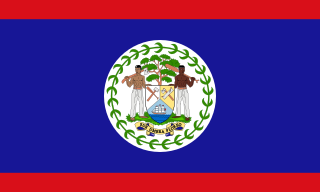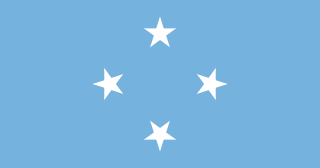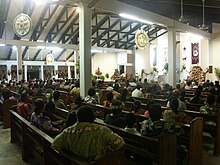
Christianity is the predominant religion in the Philippines, with Roman Catholicism being its largest denomination. Sizeable minorities adhering to Islam, Indian religions, and indigenous Philippine folk religions are also present.

The predominant religion in Brazil is Christianity, with Catholicism being its largest denomination.

The beliefs and practices of African people are highly diverse, including various ethnic religions. Generally, these traditions are oral rather than scriptural and are passed down from one generation to another through folk tales, songs, and festivals, and include beliefs in spirits and higher and lower gods, sometimes including a supreme being, as well as the veneration of the dead, and use of magic and traditional African medicine. Most religions can be described as animistic with various polytheistic and pantheistic aspects. The role of humanity is generally seen as one of harmonizing nature with the supernatural.

Christianity is the dominant religion in Belize. The single largest denomination is the Catholic Church with about 40.1% of the population, a reduction from 49.6% of the population in 2000, 57.7% in 1991 and 61.9% in 1980, although absolute numbers have still risen. Other major groups include Pentecostal with 8.4% of the population up from 7.4% in 2000 and 6.3% in 1991, Seventh-day Adventists with 5.4% of the population up from 5.2% in 2000 and 4.1% in 1991. The following of the Anglican Church has been steadily declining, with only 4.7% of the population in 2010 compared to 6.95% in 1991. About 12,000 Mennonites live mostly in the rural districts of Cayo and Orange Walk. People who declared they belong to no religion make up 15.5% of the population in 2010, more than double their 2000 census numbers. 11.2% adhere to other religions which include the Maya religion, Afro-Caribbean religions, Mormons, Hindus, Buddhists, Muslims, Baháʼís, Rastafarians and others.

Religiously, Fiji is a mixed society, with Christianity and Hinduism being the main faiths.

Traditional religions such as the Akan Traditional Religion and Dagbon Traditional Religion are the indigenous religions of Ghana. Islam was the first Abrahamic religion to be introduced in the country between the tenth and 15th centuries, by Muslim traders. Later, Christianity was introduced via contact with the European missionaries. Today, Christianity is the largest religion in Ghana, with substantial adherents of Islam and traditional faiths. Christianity is mainly in the country's south while Islam is based in the north. Islam gained widespread acceptance in northern Ghana after Yaa Naa Zanjina accepted the faith in the 17th century.

Religion in Angola is diverse, with Christianity being the most widely professed faith. Roman Catholics constitute 41% of the population. Other Christian denominations include Baptists, Methodists, Congregationalists, Lutherans, Reformed Churches and Seventh-day Adventists and Jehovah's Witnesses - all these denominations making up about 43% of the population.

Christianity is the predominant religion in the Democratic Republic of the Congo, with Catholicism and Protestantism being its main denominations.

Religion in Guyana is dominated by various branches of Christianity, with significant minorities of the adherents of Hinduism and Islam.

Burkina Faso is a religiously diverse society, with Islam being the dominant religion. According to the latest 2019 census, 63.8% of the population adheres to Islam. Around 26.3% of the population practices Christianity, 9.0% follow Animism/Folk Religion, and that 0.9% are unaffiliated or follow other faiths.

Christianity is the predominant religion in Eswatini, with Protestantism being its largest denomination.

Christianity is the majority religion in Cameroon, with significant minorities of the adherents of Islam and traditional faiths.

Christianity is the predominant religion in Solomon Islands, with Anglicanism being the single largest denomination.

Christianity is the largest religion in Vanuatu. Vanuatu is an archipelago made up of 13 larger islands, and approximately 70 smaller surrounding islands, each home to multitudes of diverse cultural and religious communities.

Christianity is the predominant religion in the Federated States of Micronesia and represents an integral part of the nation's identity.

Christianity is the largest religion in Nauru, with Nauru Congregational Church being the largest denomination, encompassing 35.71% of the population as of the 2011 census.

Christianity is the official and largest religion in Samoa, with its various denominations accounting for around 98% of the total population. The article 1 of the Constitution of Samoa states that "Samoa is a Christian nation founded of God the Father, the Son and the Holy Spirit".

Christianity is the predominant religion in Tuvalu, with Calvinism being the single largest denomination.

Islam is a minority religion in the Marshall Islands. All Muslims in the country belong to the minority Ahmadiyya sect. The Ahmadiyya mosque in Uliga, first constructed in 2012 in the Marshall Islands is the only mosque in Oceania's subregion of Micronesia. According to a 2009 report there were about 10 Muslims in the Marshall Islands, although more recent reports indicate about 150 believers in the country.
Religious syncretism is the blending of religious belief systems into a new system, or the incorporation of other beliefs into an existing religious tradition.




















